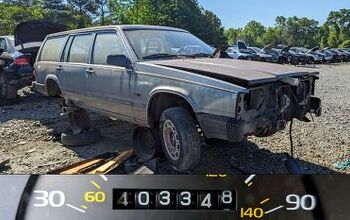Texas: Top State Senator Says Red Light Cameras About Money
The most senior Texas state lawmaker admitted last week that he voted to save red light camera programs even though he knew they had no effect on public safety.
State Senator John Whitmire (D-Houston), who was first elected to the legislature in 1973, appeared on KTRH radio’s morning news program to discuss how public opposition to red light cameras persuaded legislators to devote some of the camera profit to trauma centers.
“People went to Austin protesting it, and so John Carona — a senator from Dallas — didn’t want to eliminate them,” Whitmire explained. “He said, you know, it’s obviously a revenue source. Local communities try to sell it as public safety, cutting down on red light running. He and I and I think most people would realize it’s really a revenue source. John Carona in Austin said, I’m not going to eliminate but let the state have half of that revenue dedicated to trauma care which is badly underfunded.”
Though the money was promised to trauma care centers, over $4.1 million of this money has remained in the state’s general fund and not been distributed to the trauma centers.
“The budget writers in an effort to find resources and money to balance the budget never sent that,” Whitmire explained. “It’s wrong. It’s wrong.”
Whitmire played an essential role in 2005 in blocking House legislation that would have banned red light cameras as well as an amendment that would have forced municipalities to obtain voter approval before instituting a red light camera program. The Senate voted 18 to 13 to against the referendum requirement. Whitmire explained that the mayor of Houston, a fellow Democrat, had pressed him for that vote.
“Bill White came to Austin and he had two issues,” Whitmire said. “The next vote that came up was to try to repeal red light cameras. The vote was whether we’d take that away from the cities. And I don’t think Austin ought to be trying to run the cities on a day-to-day basis.”
Houston’s cameras were ultimately shut down, but only after a heated legal and political battle. A federal judge even intervened to overturn the results of a public vote on the matter.
“It is a bad deal and the people acted on it and repealed it,” Whitmire said. “The issue of red light cameras, I was always suspect about it. I never thought it was about public safety. The greatest number of red light citations are issued to people who don’t come to a complete stop on turning right or similar violations. It’s a civil ticket, that shows you how insincere they are about it.”
This article courtesy of thenewspaper.com
More by The Newspaper
Latest Car Reviews
Read moreLatest Product Reviews
Read moreRecent Comments
- Spectator Wild to me the US sent like $100B overseas for other peoples wars while we clammer over .1% of that money being used to promote EVs in our country.
- Spectator got a pic of that 27 inch screen? That sounds massive!
- MaintenanceCosts "And with ANY car, always budget for maintenance."The question is whether you have to budget a thousand bucks (or euro) a year, or a quarter of your income.
- FreedMike The NASCAR race was a dandy. That finish…
- EBFlex It’s ironic that the typical low IQ big government simps are all over this yet we’re completely silent when oil companies took massive losses during Covid. Funny how that’s fine but profits aren’t. These people have no idea how business works.


































Comments
Join the conversation
As if any senator receives (or pays) traffic tickets. Keep up the good work Whitmire, we know you've got our best interests at heart.
Cameras give a false sense of safety, because even with a $500 fine (Calif.) they can't stop the real late running which is unintentional and occurs when someone is lost, distracted, confused or impaired. The mere presence of a camera can't stop the real late runners because the runners don't know (a tourist), or don't remember, that there's a camera up ahead. To stop them, improve the visual cues that say "Intersection ahead." Florida's DOT found that pavement markings (paint!) cut running by up to 74%. Make the signals brighter, bigger, add backboards, and put the poles on the NEAR side of the intersection. Put brighter bulbs in the street lights at signals, and lighted name signs for the cross streets. Who needs cameras? But even with cameras, do the visual cues. They are cheap to do so can be done citywide, unlike cameras which are expensive, ineffective against the real late runners, increase rearenders, drive shoppers/tourists away, and send local money to Oz, AZ or NY (Goldman-Sachs) where it won't come back.